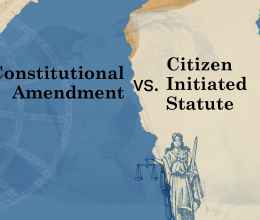COLUMBUS - The American Civil Liberties Union of Ohio released a new report today titled “Prisons for Profit: A look at private prisons” that explores the negative impacts prison privatization has brought to other states. The report is a compilation of scholarly studies, government reports, and stories from communities that have experienced the negative impact of prisons for profit. Ohio lawmakers are considering a proposal in the state’s biennial budget to sell five prisons and allow private companies to run their operations.
“Privatizing prisons is seen as a quick remedy for states looking to alleviate budget concerns, but they are often more costly to the state. While our prison system is undeniably bloated, we must find long-term solutions to stop the flow of people into the system, not gamble on a system that could bring more problems than it solves,” said ACLU of Ohio Executive Director Christine Link.
According to the ACLU’s report, several studies have shown that prison privatization yields little or no cost savings to the state. In addition, the ACLU outlined several stories from states ranging from Pennsylvania, Arizona, and Texas that encountered serious cost and public safety problems after privatizing their prison systems. The ACLU also outlined Ohio’s troubled history with private prisons. In the 1990s, a private federal prison was opened in Youngstown, but was closed a few years later after a string of lawsuits, security breaches, and increased costs.
“Ohio has already experimented with private prisons, and we saw the terrible effects it could have on communities. While this may give the state a short-term infusion of cash, taxpayers will lose any future proceeds from these facilities, employees’ decreased earnings will damage the tax base, and less experienced employees will be unable to cope with serious issues that arise in the prisons,” added Link.
“In addition, many private prison facilities do not provide the rehabilitation and education services that people need to become productive members of society. Lawmakers are making important advances by reforming sentencing laws and expanding re-entry programs, but this could be undermined by private prisons who may not share the state’s goal of reducing the prison population,” concluded Link.
Currently, the state has two private prisons, North Coast Correctional Treatment Facility and Lake Erie Correctional Institution. In addition, the state would privatize Marion, North Central, and Grafton facilities.







